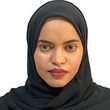
Abu Dhabi: Individuals living with chronic diseases must consult their physicians about whether they should fast during Ramadan, a top public health official has said.
In addition, those living with cardiovascular diseases should not hesitate to break their fast if they feel unwell, said Dr Budoor Al Shehhi, section head for chronic diseases at the Abu Dhabi Public Health Centre (ADPHC).
“Diabetes, hypertension, cardiovascular diseases and obesity are the most common chronic conditions among community members in Abu Dhabi. The first step for anyone living with a chronic disease, and considering fasting during Ramadan, is to visit their treating physician,” Dr Al Shehhi told Gulf News.
Required adjustments
In the UAE, worshippers are this year fasting between 13 and 15 hours daily during the holday month of Ramadan. This period of abstinence from food and water may require certain adjustments to the medication regimen and require a different disease management strategy. The treating physician will be able to assess the individual’s overall health status, comorbidities, the risk of developing complications, the feasibility of modifying medication timings, and other factors, and determine whether or not fasting is advisable, Dr Al Shehhi said.
“If the health condition of the patient allows him or her to fast, then the patient and treating physician need to discuss adjusting or modifying the medications dose and timings. A diet plan can then also be discussed with the physician or dietitian,” she added.
Three daily meals
One of the major habits people with chronic diseases must consider is including at least three daily meals, despite the changed Ramadan schedule. “Rather than two heavy meals, there are benefits of enjoying at least three meals, and it is also advised to have the pre-dawn meal — suhour — as late as possible. This will help maintain blood sugar levels and generate enough energy to sustain the individual throughout the day,” Dr Al Shehhi said.
For individuals living with cardiovascular diseases, the doctor reiterated the importance of following the treating physician’s recommendations and added that they should never hesitate to break their fast if they feel unwell. They should also seek immediate medical attention if they feel unwell.
Tips on eating right in Ramadan
Dr Al Shehhi shared the following tips on how to eat right while fasting:
— Reduce the intake of fatty and salty foods, juices, coffee, tea, and fizzy drinks as they are a diuretic, and can cause dehydration.
— Curb the amount of sweets and dessert to only small portions two to three hours after Iftaar, and preferably not on a daily basis.
— Ensure that meals are well balanced with 45 to 50 per cent carbohydrate, 20 to 30 per cent protein and less than 35 per cent fat, preferably mono and polyunsaturated.
— Stay hydrated between sunset and sunrise by drinking water and other non-sweetened beverages.
— Choose healthier cooking alternatives, such as replacing deep frying with air frying
— Start your Iftar with foods that are rich in simple carbohydrates and that can be absorbed quickly by the body, such as one or two dates or milk. This can then be followed up by complex carbohydrates with a low glycemic index, such as harees, brown rice, full-grain bread and vegetables, and a moderate quantity of protein.
— At Suhour, eat starchy carbohydrates that release energy slowly, such as the ones used in harees, jareesh, multigrain bread, oat-based cereals, pulses, lentils, rice with beans, fruit and vegetables.
— Be sure to include plenty of fruit and vegetables in your diet during Ramadan.













